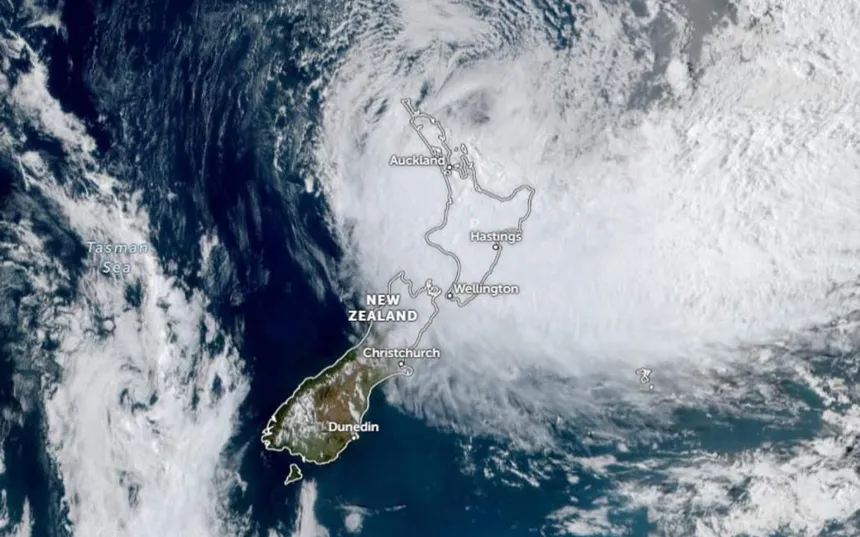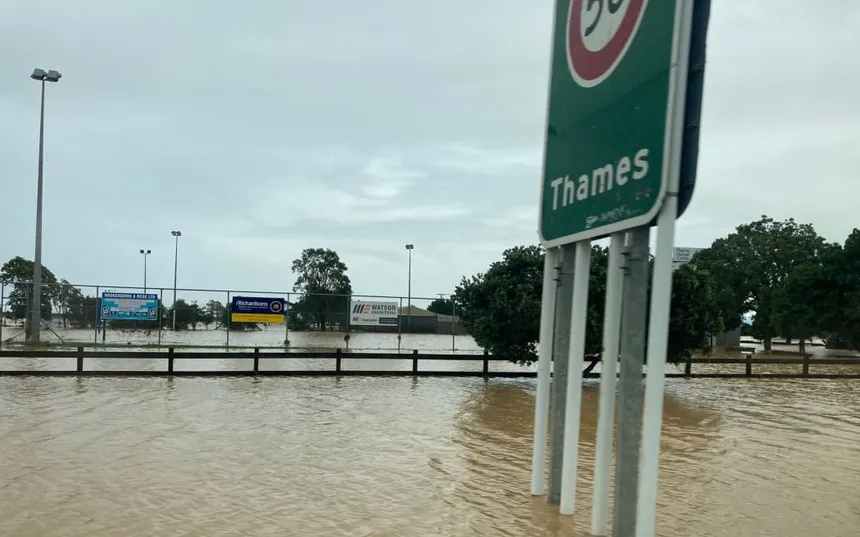As Cyclone Gabrielle bears down on New Zealand’s North Island, tens of thousands of people are without power and the largest city is still reeling from record rain just a fortnight ago. The storm, which has intensified into a severe weather event, is expected to bring intense rain and gale-force winds, including up to 200mm of rain in Auckland and 400mm in the Coromandel area.
Residents of Auckland, which was hit by flooding last month, were warned to be vigilant and prepare for the worst. The city’s 1.7 million residents were advised to finalize their preparations and then hunker down as the storm passed through. Many schools and local council services were closed, and Auckland airport cancelled most of its domestic and international flights.
The city’s harbour bridge was closed due to high winds, and train services were suspended until Monday afternoon. Commuters were warned of bus cancellations and urged to stay home if possible. The storm’s impact was felt far beyond Auckland, with rough seas and heavy rain affecting coastal and low-lying communities.
In Whangārei, the city council advised residents in the central city and business district to self-evacuate by high tide at 2pm, citing a risk of significant coastal flooding. The MetService said a storm surge could coincide with a high tide in the early hours of Tuesday morning.

As the storm intensified, the MetService recorded wind gusts of 150-160 km/h and rain rates of 15-30mm in a single hour in some areas. The agency warned of the risk of structural problems, landslips, falling trees, and power line problems in the already sodden land. The whole Auckland region was at risk of flooding, with 370 households still in emergency accommodation after last month’s flooding.
The storm has also stirred concerns about the impact of climate change on the region. Dr. Kevin Trenberth, an Auckland-based climate scientist, said the long-term warming of oceans was providing fuel for storms and adding moisture for rainfall. The cyclone’s low pressure system had generated a storm surge not seen for 40 years, the MetService warned.
As the storm continues to wreak havoc on the region, residents are urged to stay safe and prepare for a long recovery. As Auckland Mayor Wayne Brown said, “As long as it’s safe, stay home… It’s going to be a hard night and a very difficult week. For many, the recovery will be long.”

